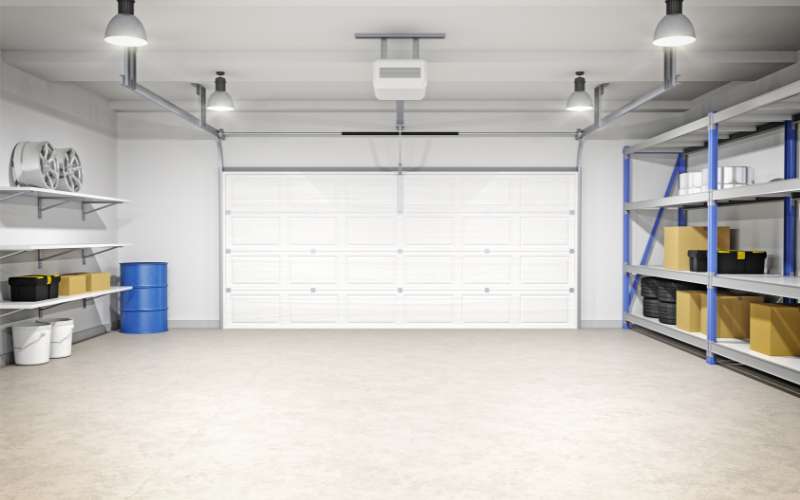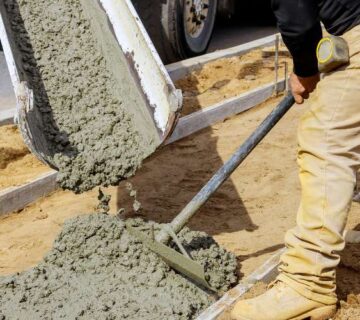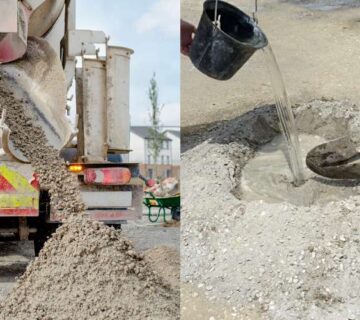Are you considering concrete for your garage floor? Understanding the pros and cons of using concrete for garage floors can help you make the best decision. Many homeowners appreciate concrete for its durability and easy maintenance, but there are also downsides to consider. Have you ever faced a cracked or stained garage floor? This blog will guide you through the benefits and drawbacks of concrete flooring, helping you decide if it’s the right choice for your garage.
Key Advantages and Disadvantages of Concrete Garage Floors
Concrete is a popular choice for garage floors due to its strength and durability. However, like any material, it comes with advantages and disadvantages. Let’s delve into the pros and cons of using concrete for garage floors to help you make an informed decision.
Pros of Using Concrete for Garage Floors
Concrete flooring offers many benefits that make it a great option for garage floors.
- Durability and Strength: Concrete is one of the most durable materials available for flooring. It can withstand heavy vehicles, tools, and equipment without showing signs of wear. With proper maintenance, concrete floors can last decades without needing replacement.
- Low Maintenance: Once installed and sealed, concrete floors require minimal maintenance. They resist stains and spills, making them easy to clean with just soap and water. Occasional resealing will help maintain their appearance and protect them from moisture and oil stains.
- Cost-Effective: Compared to other flooring options like tiles or epoxy, concrete is generally more affordable. The initial installation cost is reasonable, and its long-lasting nature means less money spent on repairs and replacements.
- Versatility in Design: Concrete can be customized to fit the aesthetic of any garage. You can opt for polished concrete, stained designs, or even stamped patterns to add a unique look to your space. With various colors and finishes available, concrete is no longer just a plain gray slab.
- Resistance to Fire and Chemicals: Concrete is fire-resistant and does not emit toxic fumes when exposed to high temperatures. It also resists most chemicals, which is crucial in a garage setting where leaks and spills can occur.
Cons of Using Concrete for Garage Floors
Despite its advantages, concrete flooring also has some downsides.
- Prone to Cracking: Concrete is strong, but it can crack under certain conditions. Changes in temperature, ground movement, or improper installation can cause cracks to form. While minor cracks are repairable, they can still be a concern for some homeowners.
- Cold and Hard Surface: Concrete floors can be quite hard and cold, especially during winter. This can make the garage uncomfortable to work in for long periods. Adding mats or rugs can help, but it does increase costs.
- Moisture Issues: If the concrete is not properly sealed, it can absorb moisture. This can lead to mildew or mold, especially in humid areas. A good sealer is necessary to prevent water from penetrating the surface.
- Requires Proper Sealing: To keep a concrete floor in good shape, regular sealing is necessary. The sealant helps protect the surface from moisture, stains, and wear. This maintenance can be a drawback for some homeowners looking for a zero-maintenance solution.
- Limited Insulation Properties: Concrete has poor insulation properties, which means it does not retain heat well. In colder climates, this could lead to higher heating costs if your garage is attached to your home.
Comparing Concrete to Other Flooring Options
- Concrete vs. Epoxy Flooring: Epoxy flooring is another popular choice for garages. While epoxy provides a glossy finish and better resistance to chemicals and stains, it is less durable over time compared to concrete. Epoxy coatings can peel or chip, especially under heavy traffic.
- Concrete vs. Tiles: Tile flooring can offer a more finished look, but it is also more prone to cracking and can be slippery when wet. Concrete, especially when textured or stained, provides a safer and more durable alternative.
- Concrete vs. Rubber Mats: Rubber mats provide cushioning and are easy to replace, but they lack the long-term durability of concrete. Over time, they can wear down, especially under heavy vehicles or equipment.
Is Concrete Right for Your Garage?
Choosing concrete for your garage floor comes down to personal preference and specific needs. If you prioritize durability, low maintenance, and a cost-effective solution, concrete may be the right choice. However, consider its potential downsides, such as cracking and coldness, before making a final decision.
Make the Right Choice for Your Garage Floor
Choosing the right flooring for your garage is crucial for long-term satisfaction. Concrete offers many benefits, but it also has its challenges. If you need more personalized advice or want to explore options, contact us today. Our team is here to help you make the best choice for your garage flooring needs!





No comment